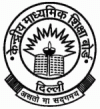(Download) CBSE : Cenbosec - Innovations in Education, Jul-Sept 2011
Disclaimer: This website is NOT associated with CBSE, for official website of CBSE visit - www.cbse.gov.in

Central Board of Secondary Education
Cenbosec - Quarterly Bulletin, Vol. 50, No. 3, July-September 2011
Innovations in Education
Content
- From the Chairman
- Articles
- Innovations in education - Mrs. Radha Mahalaxmi
- Innovations in education - Mrs. Chitra Nakra
- small steps Lead to big success - Dr. G. P. Pandey
- Innovations in education - Mr. Ashok Kumar
- Innovations in education - Mrs. Divya Matti M. B.
- Innovations in education - Mrs. Anjana Gupta
- Innovations in education - Dr. S. V. Sharma
- Innovations in education - Mrs. Renu Mishra
- Quality Development in education through Communication Technology as a Innovative Practice - Dr. Shruti Upreti
- Innovations in school education in the Context of CCe - Mr. K. L. Nagaraju
- Innovations in education: some Issues - Dr. Manjit Singh
- Innovations in education - Mr. Ajit Kumar
- Innovations in education - Ms. Smita Pant
- Innovation in education: The Role of Computer simulation in Teaching Physics Dr. Mahesh Srivastava
- Innovation in education - Ms. Devanshi Goswami
- Innovation in education - Ms. Stuti Krishna
- What other Principals say
- What other Teachers say
- News from Schools
- Green Page
- Health & Wellness Clubs
- Sahodaya Updates
- Sports Arena
- Academic Updates
- Best Practices
- News from Administration
- Circulars
From the Chairman
Globalization provides opportunities as well as challenges to use innovation as a strategy to generate knowledge flow. It provides unprecedented potential for using innovation as a tool for teaching learning and increased opportunities for all. Innovation has an impact in all fields including education as it can also influence all areas of school education such as Curriculum Planning and Development, Generating Innovative Textbooks, Harnessing Mass Media and Technology for Transacting Curriculum, Teacher education, Teacher Training and Assessment in scholastic as well as Co-scholastic areas.
The board through its education Reforms and more predominantly through the strengthening of Continuous and Comprehensive evaluation in 2009 has brought about a major shift in de-emphasizing the Public examination or board examination at the end of Grade X. The fact that teachers need to be facilitators and classroom coordinators so that learning happens in the classroom and the fact that strategies such as ‘talking pairs’ or pair work, small group work, group work or whole class work promote real learning the environment for nurturing creativity can be easily provided inside the classroom. The CCe also emphasizes that multiple modes of assessment may be harnessed in Formative Assessment such as project based learning, seminars, group discussions, debates, role play, quiz, experiments, field trips, research projects etc. The grading system which for many years was in a nascent stage was finally implemented and its merits far out way the de-merits. The challenge of replacing marks with grades in a system which has been primarily mark oriented and mark dominated is understandable
It is here I feel that technology can play a great role by generating different kinds of question types for students in a classroom assessing them and keeping records as well. When I think of semi-urban and schools situated in the remote districts I wonder if the effects of technology enabled education are available to teachers and students alike. There are various ways in which a resourceful teacher can supplement her lessons and make them interesting by using other forms of mass media such as television and newspapers.
The CBSE is also running programmes on strategic Leadership and effective school Management through various agencies so that it can provide opportunities and a platform for schools to participate in this process of sharing.
The CBSE also emphasizes on celebration of the national education Day and celebrating the day by organizing activities based on the theme `Child Centred education’.
This year the 18th national Annual Conference for sahodaya school Complexes will be held from 27-29 Dec., 2011 at Chennai and the theme of the conference is `Quality Improvement in schools’. The theme is not only current but also topical as it reflects the concerns and issues raised in the national Curriculum Framework 2005, the Position Paper on examination Reforms, the Report of the national Knowledge Commission and also the Right of the Children to Free and Compulsory education Act 2009.
I hope that schools will benefit from the articles in this issue and contribute to the forthcoming issues which are also based on relevant themes.
Courtesy : Central Board of Secondary Education